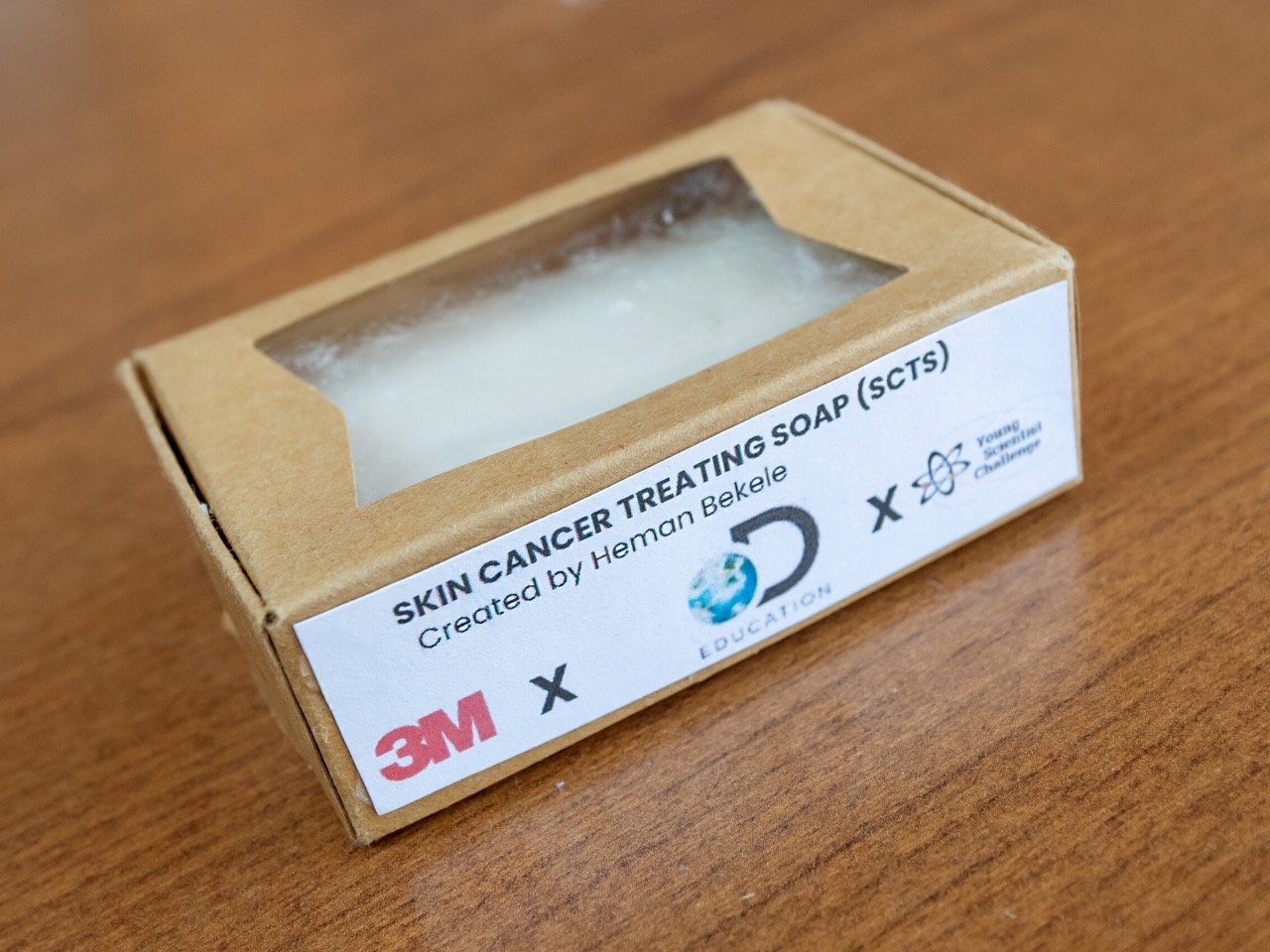Innovation sometimes comes from the most unexpected sources, and nothing proves this better than the groundbreaking work of Heman Bekele. This 14-year-old wunderkind from Virginia has developed something that seasoned scientists and pharmaceutical companies haven’t quite cracked: an affordable soap that could potentially treat and prevent skin cancer. What makes his invention so revolutionary isn’t just the concept but the elegant simplicity behind it, combining basic chemistry with sophisticated drug delivery systems in a way that makes you wonder why nobody thought of it before.
The scientific community has certainly taken notice. Bekele’s Skin Cancer Treating Soap (SCTS) earned him the 3M Young Scientist Challenge award with a $25,000 prize, landed him on TIME magazine’s cover as their 2024 Kid of the Year, and most recently secured him the Gloria Barron Prize for Young Heroes with another $10,000 to support his research. Not bad for someone who still has to balance lab work with high school homework and marching band practice.
Designer: Heman Bekele
Bekele’s innovation journey started with his childhood observations in Ethiopia, where he witnessed countless people working long hours under the scorching sun without protective clothing or sunscreen. After his family moved to the United States, he connected these memories with what he learned about skin cancer risks and treatment disparities. The standard treatment, imiquimod cream, costs a staggering $40,000, putting it far beyond reach for most people globally. His brilliant insight? Create a vehicle that costs pennies but delivers the same active ingredient.
The technical genius of Bekele’s soap lies in its use of lipid nanoparticles that encapsulate imiquimod, an FDA-approved compound that activates immune cells to fight cancer. When users wash with the soap, the lipid nanoparticles adhere to the skin at a molecular level, remaining behind after rinsing to deliver the cancer-fighting drug. This solves the primary challenge of topical medications, keeping the active ingredient in contact with the skin long enough to be effective while bringing the cost down to under $9 per bar.
Currently, Bekele is collaborating with molecular biologist Vito Rebecca at Johns Hopkins Bloomberg School of Public Health, running tests on mice injected with skin cancer cells. The research is showing promise, though there’s still significant work ahead. The scientific process requires patience; patenting, clinical trials, and FDA approval could take up to a decade.
The potential impact stretches far beyond just another cancer treatment. If successful, this technology could revolutionize drug delivery systems broadly, making treatments more accessible worldwide, particularly in regions with limited healthcare infrastructure. The concept could potentially extend to other skin conditions or even preventative applications.
The post This Soap Fights Skin Cancer: And A 14-Year Old Invented It first appeared on Yanko Design.

